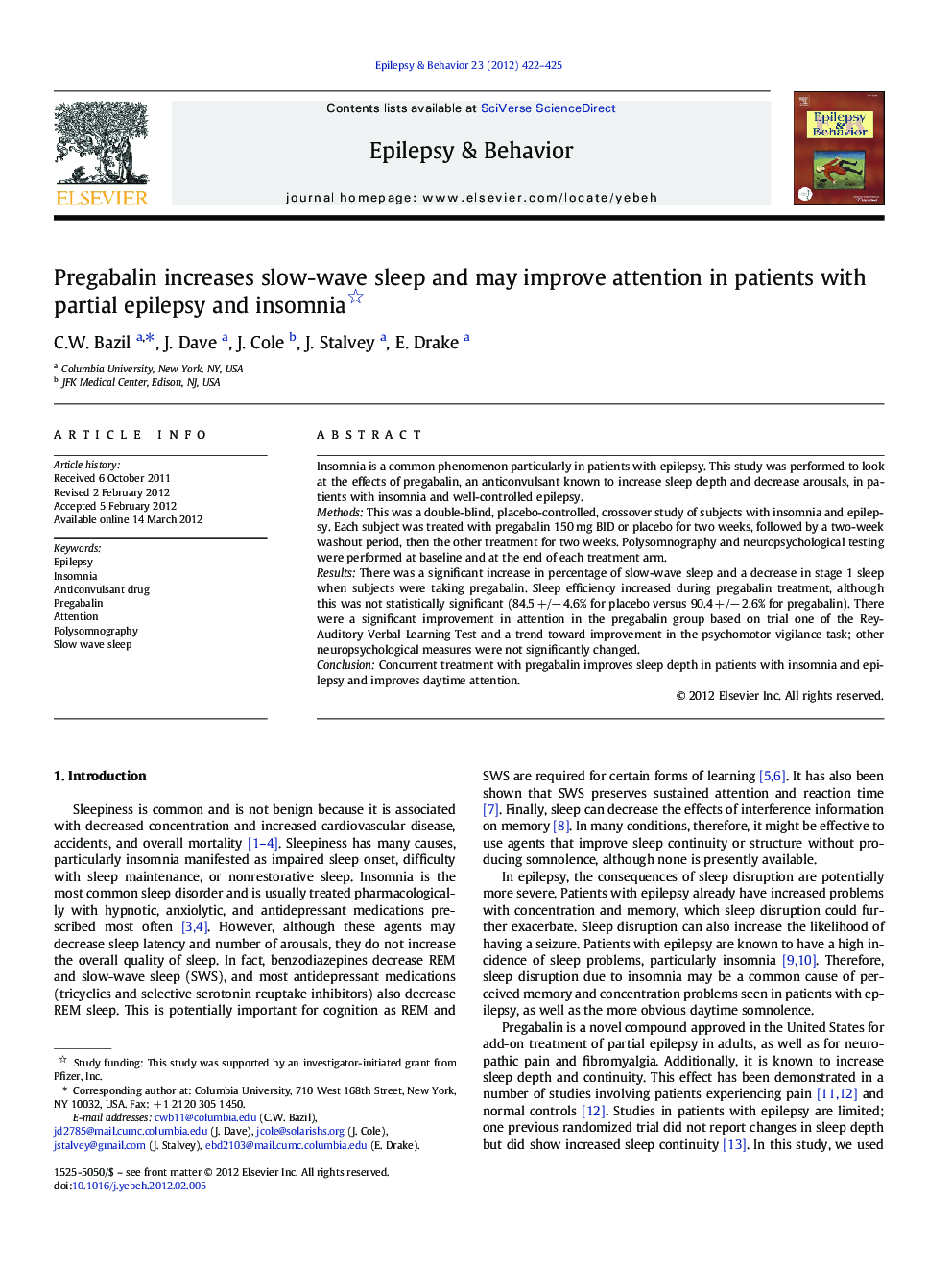| Article ID | Journal | Published Year | Pages | File Type |
|---|---|---|---|---|
| 3049922 | Epilepsy & Behavior | 2012 | 4 Pages |
Insomnia is a common phenomenon particularly in patients with epilepsy. This study was performed to look at the effects of pregabalin, an anticonvulsant known to increase sleep depth and decrease arousals, in patients with insomnia and well-controlled epilepsy.MethodsThis was a double-blind, placebo-controlled, crossover study of subjects with insomnia and epilepsy. Each subject was treated with pregabalin 150 mg BID or placebo for two weeks, followed by a two-week washout period, then the other treatment for two weeks. Polysomnography and neuropsychological testing were performed at baseline and at the end of each treatment arm.ResultsThere was a significant increase in percentage of slow-wave sleep and a decrease in stage 1 sleep when subjects were taking pregabalin. Sleep efficiency increased during pregabalin treatment, although this was not statistically significant (84.5 +/− 4.6% for placebo versus 90.4 +/− 2.6% for pregabalin). There were a significant improvement in attention in the pregabalin group based on trial one of the Rey-Auditory Verbal Learning Test and a trend toward improvement in the psychomotor vigilance task; other neuropsychological measures were not significantly changed.ConclusionConcurrent treatment with pregabalin improves sleep depth in patients with insomnia and epilepsy and improves daytime attention.
► Subjects with insomnia and well-controlled epilepsy were studied. ► This is a double-blind, placebo-controlled, crossover study of pregabalin. ► Pregabalin increased slow-wave sleep and decreased stage 1 sleep. ► Pregabalin treatment improved attention using a verbal learning test. ► Pregabalin can improve sleep and attention in patients with insomnia and epilepsy.
